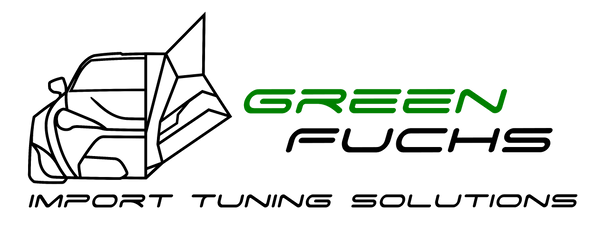Notes on legality
Notes on legality
Since we often receive questions about the legality of our articles, we have decided to present the topic in a more clear manner for you.
Until now, you've found many tips directly in the product descriptions – and that will remain the case. We've also integrated a new data field into each product, allowing you to filter specifically to quickly get an initial overview.
Important: The following categories are intended only as a rough guide and do not constitute legally binding information . Anyone familiar with tuning in Germany knows that the topic is complex and cannot be clearly divided into a few categories. Nevertheless, we want to provide you with an initial assessment with this classification.
Furthermore, the entire content only applies to Germany ! Of course, ECE approvals are valid throughout the ECE region; all other documents, especially those that require registration, must always be discussed with your local testing authority abroad beforehand! We're not experts on Italian traffic regulations, so I'm sorry.
🟩 No registration required (no registration required)
For parts that are not legally relevant for vehicle registration—e.g., oil filters, gear knobs, or original spare parts. Many of our strut braces and steering wheels also fall into this category, provided they do not affect vehicle function. Further details can be found in the respective product descriptions.
🟩 Registration-free (with ECE approval)
The part has a valid ECE approval and thus a Europe-wide recognized E number. This applies to the specified vehicle – without any registration or additional documentation. The exception is exhaust systems, as their numbers are not visible when installed. Lighting components, on the other hand, come without any additional documentation – the marking is sufficient for inspection by inspectors or authorities.
🟨 ABE / parts certificate / parts type approval (registration required, but safe)
These parts come with documentation that allows for registration as part of a modification inspection – especially for near-production vehicles. Starting June 2025, the new "parts type approval" will replace the ABE and parts certificates. It is somewhat stricter, but does not retroactively replace the previous documentation. Registrations with parts certificates will continue to be possible without any problems for two years. After that, an individual inspection will be necessary – but not impossible.
🟧 Material/strength certificate (racing equipment, individual acceptance may be possible)
Especially with body kits or custom-built components – such as those from Spiller – there are often no parts certificates. Therefore, the parts are sold as a pure racing part. Whether individual approval is possible depends largely on the part and the inspector. We recommend consulting a testing center before purchasing . Registration is possible, but not guaranteed.
🟥 Pure racing item (no papers, registration unlikely)
No documentation is available for this. Approval for road use is generally excluded. Nevertheless, there may be isolated cases where parts are approved by particularly dedicated testers – however, there is no guarantee of this. Details can be found in the respective product description.
🟧 OEM accessories without EU approval (part number available, registration may be possible)
For example, STI, TRD, or GR parts from abroad. These components were never officially distributed or approved in Germany, but are often of high quality and have original part numbers. Usually, there are no documentation—except perhaps for a Japanese manual. Some inspectors nevertheless recognize such parts (e.g., the rubber canards of the GT86 VFL). Nevertheless, they are expressly sold as racing items without approval for public road use—registration remains the exception.
